Do you have a rat problem? Rats can be a big nuisance, and they can also damage your garden. In this article, we will discuss how to keep rats out of the garden. We will cover common questions such as “What are some tips for keeping rats away?” and “How do I know if I have a rat problem?” We will also provide useful tips on how to get rid of rats in your garden. So read on to learn everything you need to know about rat control!
Rats and Their Behavior
Most rats are active at night, although some will venture out during the day in search of food. They typically live in burrows underground but will also nest in trees, buildings, or any other sheltered spot. A single rat can produce up to 20 offspring per year, so infestations can quickly get out of control.
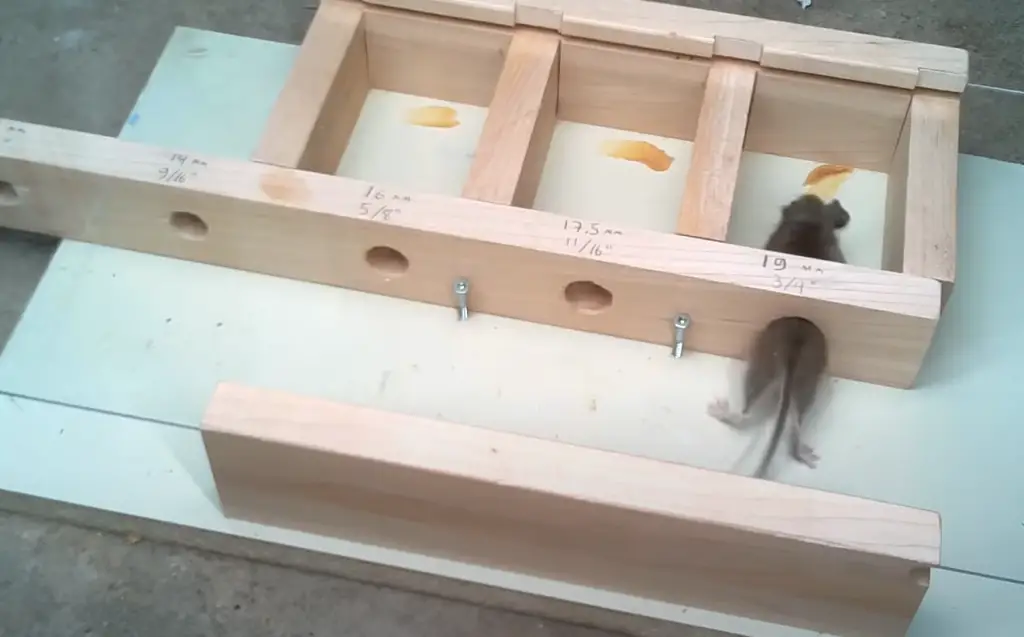
Many homeowners often find rats in their storage sheds, garages, or even in their homes. If you have rats in your garden, they may be eating your plants or digging holes in the ground. Rats can also carry fleas and other parasites, which can infest your home. [1]
Why Rats are Attracted to Gardens
But what makes rats choose one garden over another? There are many factors that can attract rats to a particular area, including:
- Food sources: Rats are attracted to gardens with fruit trees or vegetable gardens, as these provide an easy source of food. If you have a compost pile, this can also attract rats looking for a meal;
- Water sources: Rats need water to survive and will often drink from puddles, birdbaths, or any other source of water they can find. If your garden has a pond or other water feature, this may be attracting rats looking for a drink;
- Warmth: In colder months, rats will seek out areas that offer shelter from the cold weather. This means that sheds, garages, and even homes can become attractive to rats looking for a warm place to nest;
- Cover: Rats feel safer when they are hidden from view and will often look for areas with dense vegetation or piles of debris to build their nests. If your garden has dense shrubs or tall grass, this may be attracting rats;
- Safety: Finally, rats are attracted to gardens that offer safety from predators. This means that gardens located near forests or other areas with dense cover may be more likely to attract rats than those in open spaces; [1] [2]
How to Identify the Rat Problem in Your Garden
Still not sure if you have a rat problem in your garden? There are several signs that can indicate the presence of rats. This step is important as prevention measures will vary depending on the type of pest present.
Smudge marks
Smudge marks are a good indicator that you have rats in your garden. These smudges are caused by the oil and dirt on a rat’s body as it rubs against surfaces. You can usually find these marks near rat holes or along their travel routes. Observe the walls, trees, and other surfaces in your garden for smudge marks.
Burrow holes
Rats will typically create burrow holes that are about 2-4 inches in diameter. These holes are generally found along the foundation of buildings or other structures and may have rat droppings near them.
Gnawing signs
One of the most obvious signs of rats is gnawing damage. Rats need to gnaw on nearly everything, including hard materials to keep their teeth at a manageable length or out of sheer curiosity. Unfortunately, this means that they will damage any soft material they come into contact with, including wood, plastic, and even aluminum.
Feces
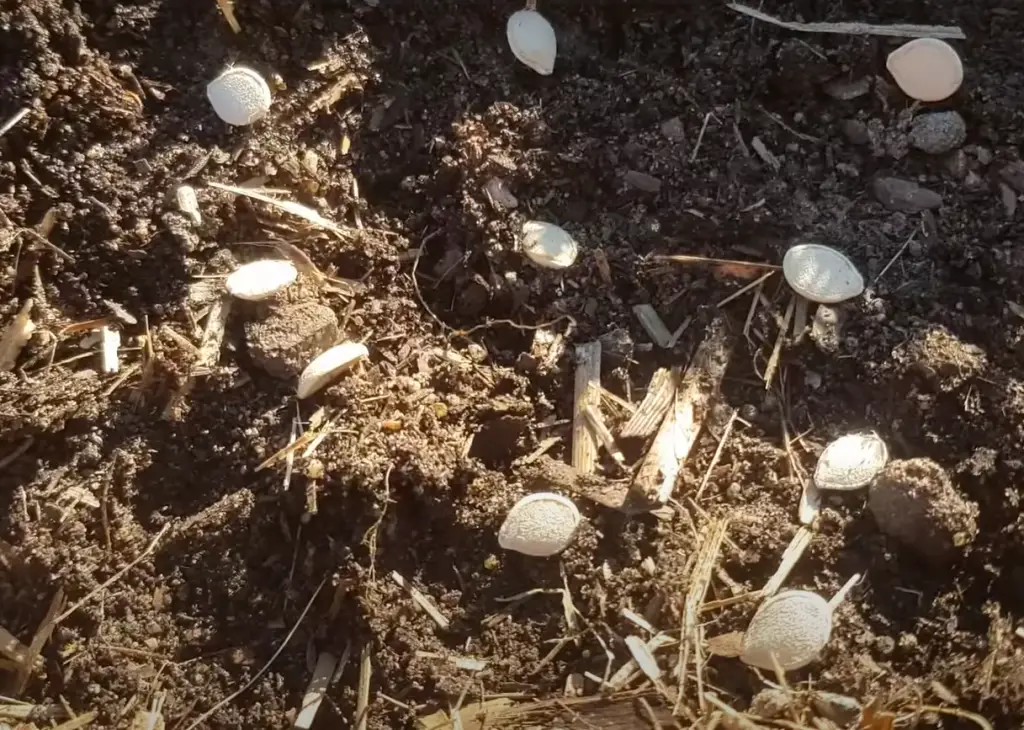
Sounds
Though rats are mostly active at night, you may hear them during the day as well. They make a variety of sounds including:
- Squeaking;
- Scratching;
- Gnawing;
If you hear these noises coming from your garden, it’s likely that you have a rat problem.
Footprints
Rats are excellent climbers and can squeeze into small spaces, so they can access your garden from many different areas. To see if rats have been in your garden, look for their footprints. Rat footprints will be small and have four toes on each foot.
Nests
Rats will build their nests using soft materials like paper, fabric, and insulation. Nests are typically found in dark, hidden areas like behind appliances or in crawl spaces. If you find a nest in your garden, there’s a good chance you have a rat problem. [1] [2]
How to Prevent Rats From Coming to Your Garden
Obviously, it’s easier to prevent rats from coming to your garden in the first place, rather than trying to get rid of them once they’re already there. So before we get into how to get rid of rats in your garden, let’s discuss how to keep them out in the first place.
Keep the garden tidy
One of the main reasons rats come into gardens is because they’re looking for food. If your garden is full of debris, overgrown plants, and rotting fruit and vegetables, it’s going to be a lot more attractive to rats than a tidy, well-kept garden.
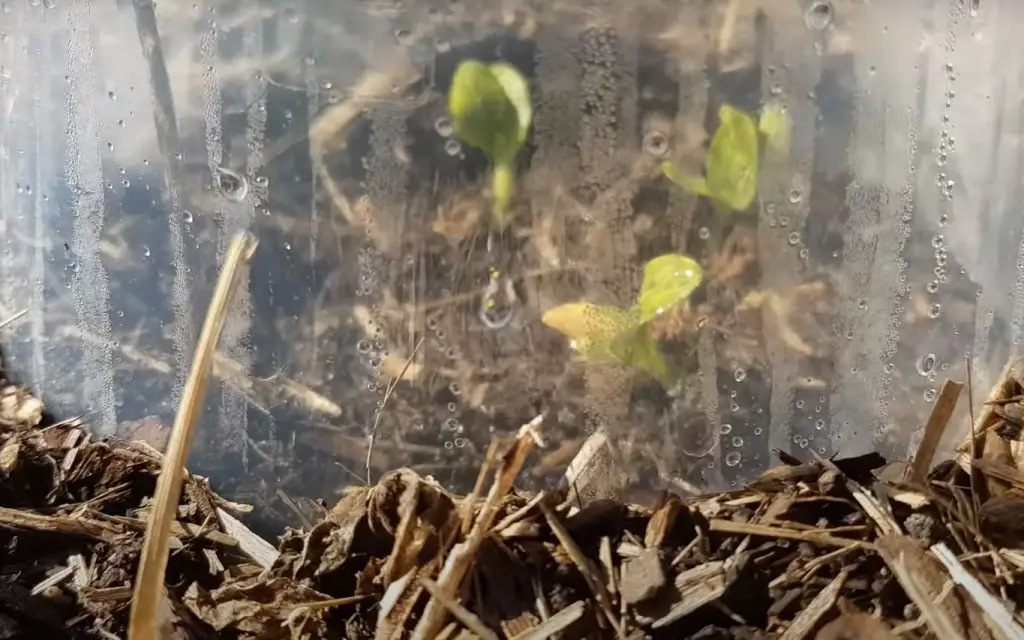
Be sure to trim back any branches that are hanging over your garden, as rats can use these to easily access your garden. It’s also a good idea to remove any thick undergrowth that might provide shelter for rats.
Move things around
Rats are creatures of habit and they like to stick to the same routes and paths. So one way to deter rats from coming into your garden is to regularly move things around. This might mean moving your trash cans, changing the location of your pet’s food bowl, or even just moving potted plants around on a regular basis. By breaking up their usual routines, you can make your garden less attractive to rats.
While this might seem like a lot of work, even just making small changes on a regular basis can be enough to deter rats. And as an added bonus, keeping your garden in a state of flux will also make it more interesting for you!
Block access to decking
Rats are excellent climbers, so if you have any decking in your garden, it’s important to make sure it’s well-sealed. Rats can easily squeeze through tiny gaps, so check your decking for any cracks or crevices and seal them up with wire mesh or caulk. If possible, try to keep any food or garbage away from your decking, as this will only attract rats.
Avoid feeding wild birds or pets outside
While it might be fun to watch the birds or feed your pet outside, doing so can attract rats. If you must do this, make sure to clean up any food that is left behind as soon as possible.
Bird feeders attract not only rats but also mice, squirrels, and other animals that might eat your plants. So it’s best to avoid them if you can.
Keep your garbage cans clean and sealed
Another way to attract rats is by having dirty or unsealed garbage cans. If you have garbage cans in your garden, make sure they are clean and seal any openings. This will help to keep rats away from your garbage and prevent them from coming into your garden.
You may also want to consider investing in a rat-proof trash can. Some rats are attracted to gardens because of the food that’s available there. If you’re not careful about disposing of food waste, you may inadvertently be inviting rats into your garden.
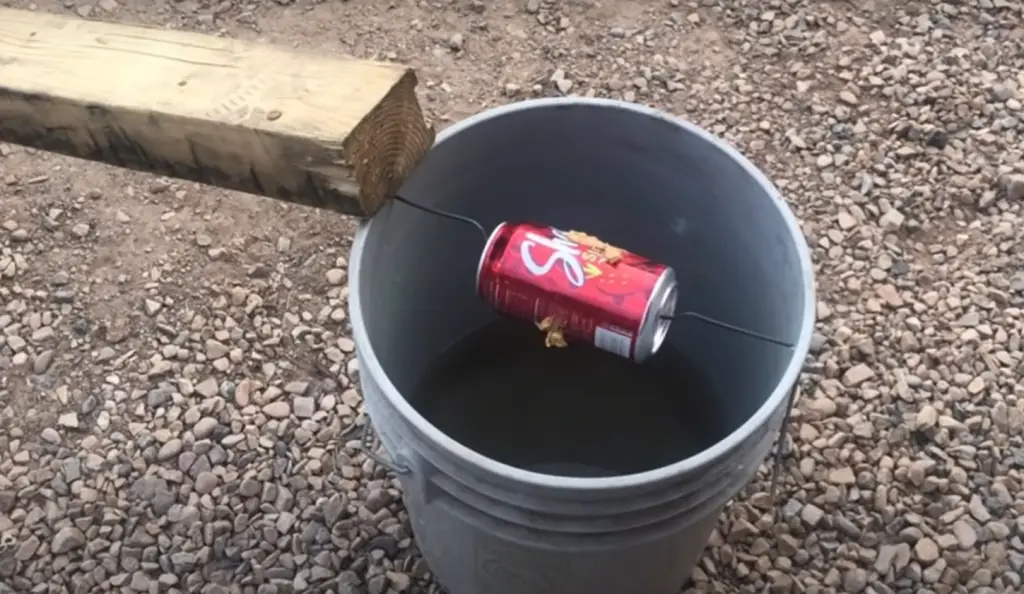
Block access to garden buildings
Sometimes rats may find your garden building, such as a shed, an attractive place to live. If you have rats in your garden, one of the first things you should do is check if they’re living in a building on your property.
And even if you manage to get the creature out, it’ll just keep coming back unless you block the opening that it’s using to access the building. To do this, you’ll need to:
Find out how the rat is getting into the building in the first place. This may require some detective work on your part. Check for holes or gaps around doors, windows, and vents. Rats can squeeze through openings that are as small as a quarter of an inch (0.64 cm), so be thorough in your inspection.
Once you’ve found the opening that the rat is using to get into the building, seal it up with steel wool, wire mesh, or caulk. Be sure to use materials that rats cannot gnaw through.
Set up metal border fencing with very small openings
When it comes to protection against critters, a fence is usually your best bet. If you have rats in your garden, chances are they’re coming from somewhere else and just passing through. So, if you can block their entrance with a fence, they’ll likely just go somewhere else.
Now, when it comes to choosing a fence to keep rats out, you’ll want to make sure it’s made of metal and has very small openings. This is because rats can squeeze their bodies through incredibly small spaces – even smaller than you might think. So, if there are any gaps or holes in your fence, no matter how small, the rats will probably be able to get through.
If you want to be 100% sure no rat will defeat your fencing, consider metal sheeting fencing that covers the ground around the perimeter of your garden as well. This will block any burrowing rats from getting in, as well. Sadly this isn’t the most attractive option, but if you’re desperate to keep rats out, it’s certainly the most effective.
Protect your compost bin
As a gardener, you’re probably familiar with the benefits of composting. Compost is full of nutrients that are essential for healthy plants, and it’s a great way to recycle garden waste.
However, did you know that your compost bin can also be attractive to rats? That’s because rats are attracted to anything that contains food scraps.
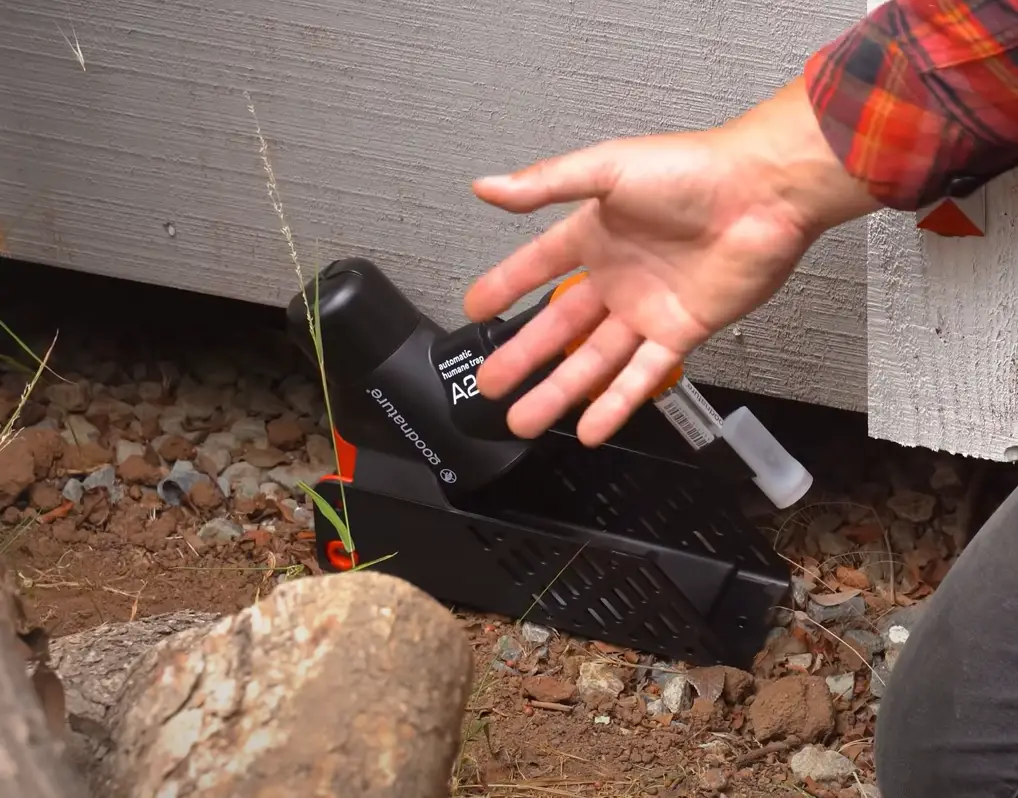
So how do you protect your compost bin from rats? The best way is to keep it covered. You can use a lid, tarp, or even burlap sacks to cover your compost bin. This will help to keep the smell contained, and it will also make it more difficult for rats to access food scraps.
Finally, don’t add meat or dairy products to your compost bin. These items will attract rats (and other animals) even more than other food scraps. You may want to reconsider adding eggshells as well for this reason.
Keep an eye on crops
Rats are attracted to areas where there is food, water, and shelter. If you have a garden, chances are you’re providing at least one of these things for them. To keep rats away, it’s important to monitor your crops closely and pick up anything that falls on the ground. This includes fruits, vegetables, nuts, and seeds.
And it’s best to inspect the crops for present damage while you’re at it, as rats will often nibble on them as well. If you see any damage, it’s likely that rats are already present and you’ll need to take action to get rid of them. The sooner you catch them, the easier it will be to get rid of them.
Get rid of water sources
Rats need water to survive, so getting rid of any water sources on your property is a good place to start. If you have a birdbath or koi pond in your garden, make sure it has a cover so that rats can’t get to the water. If you have any leaks in your irrigation system, fix them as soon as possible. And finally, keep an eye on pet food and water bowls – rats will drink from these if they’re desperate enough.
Encourage predators
Finally, one of the best ways to keep rats away from your property is to encourage predators. If you have outdoor cats, they may provide some natural rat control. Birds of prey, such as owls and hawks, will also eat rats. [1] [2] [3]
How to Keep Rats Out of the Garden
Now you should know how to keep rats away from your garden. But what about the existing rodents in your yard? If you have rats in your garden, it’s time to take action as soon as possible.
Spray peppermint oil
One of the most effective ways to keep rats away is to spray peppermint oil around your garden. The strong smell of peppermint will deter rats from entering your garden, and the oil can also help to repel other pests like mice, spiders, and ants.
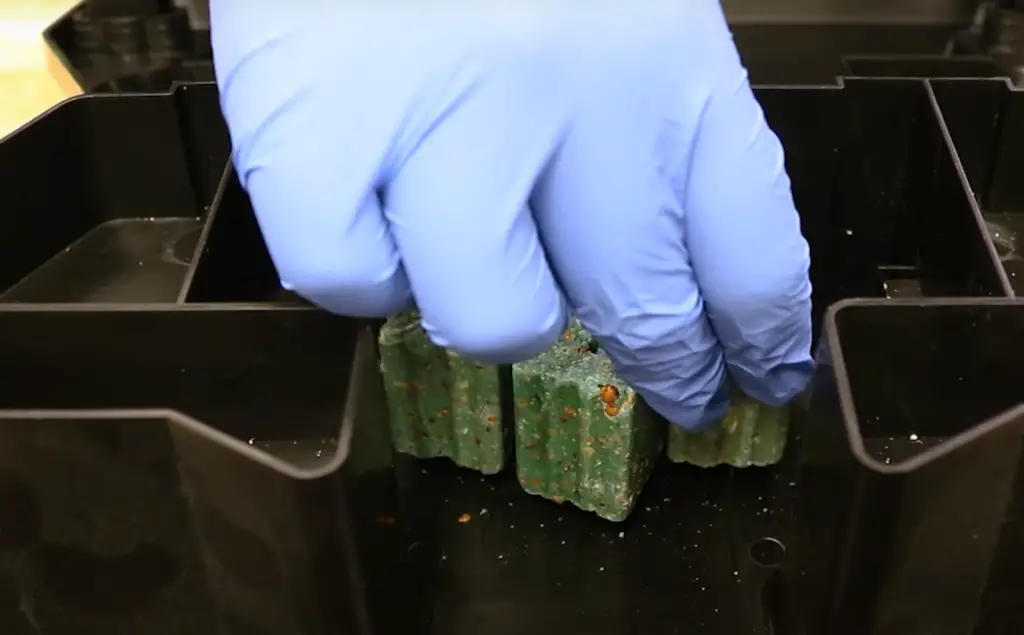
You can also add a few drops of peppermint oil to cotton balls and place them near entry points into your homes, such as in doorways and windows.
Grow natural detergents
Another way to keep rats away from your garden is to grow plants that produce natural detergents. These plants release chemicals into the air that repel rats, mice, and other pests. Let’s take a look at these:
Pungent herbs
Pungent herbs like rosemary, sage, and thyme can also help to deter rats from your garden. These herbs release a strong scent that rats find unpleasant, so planting them around the perimeter of your garden can help to keep rodents away.
Mint
Mint is another effective rat deterrent. This plant releases a strong minty smell that rats find offensive, making it an ideal choice for keeping them out of your garden. Mint can also help to repel other pests like mosquitoes and flies.
Cayenne pepper
Cayenne pepper is another spice that can help to deter rats. The strong smell of cayenne pepper will make rats think twice about entering your garden, and the spice can also help to repel a variety of other pests, bugs, and rodents alike.
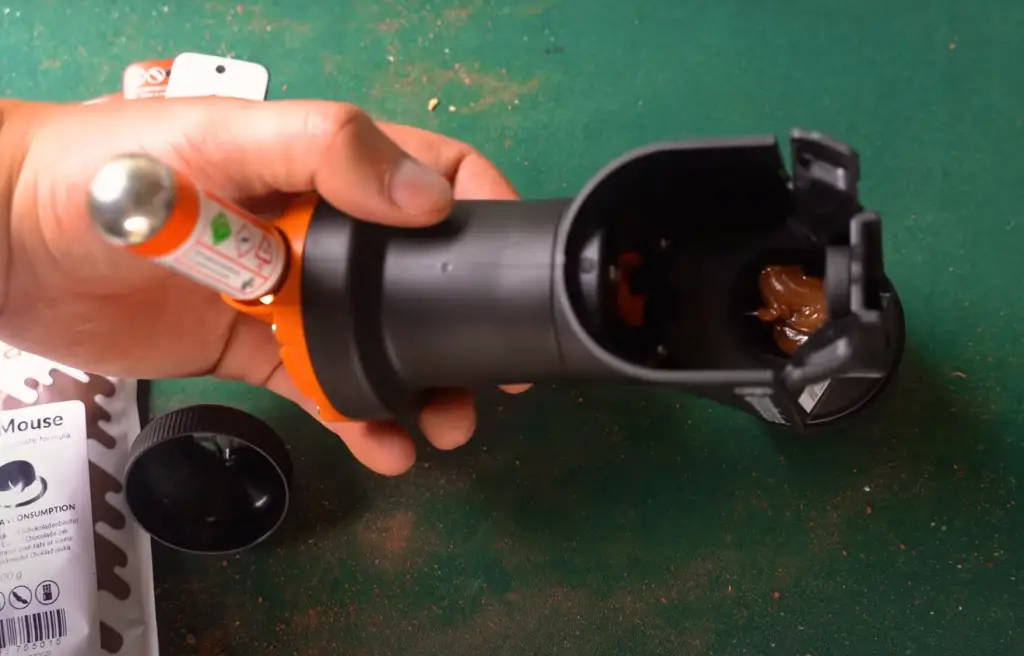
Planting these around the edge of your garden can create a barrier that rats are reluctant to cross. You can also add these plants to areas where rats are already present, as the scent will help to drive them away. Not only will these plants help to keep rats away, but they can also make your garden smell great!
Install sonic rodent repellents
Rats are no different from other animals – they don’t like loud noises. You can take advantage of this by installing sonic rodent repellents in your garden. These devices emit high-frequency sound waves that are really annoying for rats (and other rodents), but completely harmless to humans and pets.
Use traps
If you have rats in your garden, the best way to get rid of them is to use traps. This method is the most effective and will help you to get rid of rats quickly. Just keep in mind that traps can also kill other animals like birds and squirrels, so be sure to use them with caution.
If you don’t want to kill the rats, you can also use live traps. These devices capture rats alive, so you can then release them into an area far away from your home. Just like with the snap trap, you need to place the trap in the area where you primarily saw rats. Once a rat is caught, release it into an appropriate location at least 1 mile away from your home.
Live traps are a good choice if you have young children or pets, as there is no risk of them being injured by the trap.
Place rat poison
If you have a serious rat problem, you may need to resort to using poison. Rat poison is very effective at killing rats, but it can also be dangerous to other animals and humans if used improperly. Rat poison normally comes in the form of pellets or blocks, and it works by causing the rat to bleed to death internally.
If you decide to use poison, be sure to follow the directions on the package carefully. And keep in mind that this method will kill the rats, so you will need to dispose of their bodies properly. Avoid placing rat poison near areas where children or pets might find it. And of course, avoid crops and vegetables if you don’t want the poison to contaminate them.
Contact rodent management
If you have tried all of the methods above and you are still having problems with rats, you may need to contact rodent management. These professionals can help to identify the source of your rat problem and recommend a course of action. They will also be able to provide you with tips on how to prevent rats from returning in the future.
Just keep in mind that most rodent management companies use poison to kill rats, so this may not be the best option if you have young children or pets. If you decide to go this route, be sure to ask about the type of poison that will be used and what precautions need to be taken. [1] [2] [3]
FAQ
What scent will keep rats away?
There are a few scents that have been known to keep rats away. These include peppermint, citronella, and lemongrass. You can use these essential oils to make a homemade rat-repellent spray. Just mix 1 teaspoon of oil with 1 cup of water and put it in a spray bottle. Then, mist the perimeter of your garden with the mixture.
What can I put outside to keep rats away?
There are a variety of things you can put outside to keep rats away. Some people swear by using ultrasonic sound devices, while others prefer to use more natural methods such as planting certain herbs or flowers. Still, others opt for commercial rat repellents. Whichever method you choose, be sure to place the device or repellent in an area where rats are active or have been seen in the past.
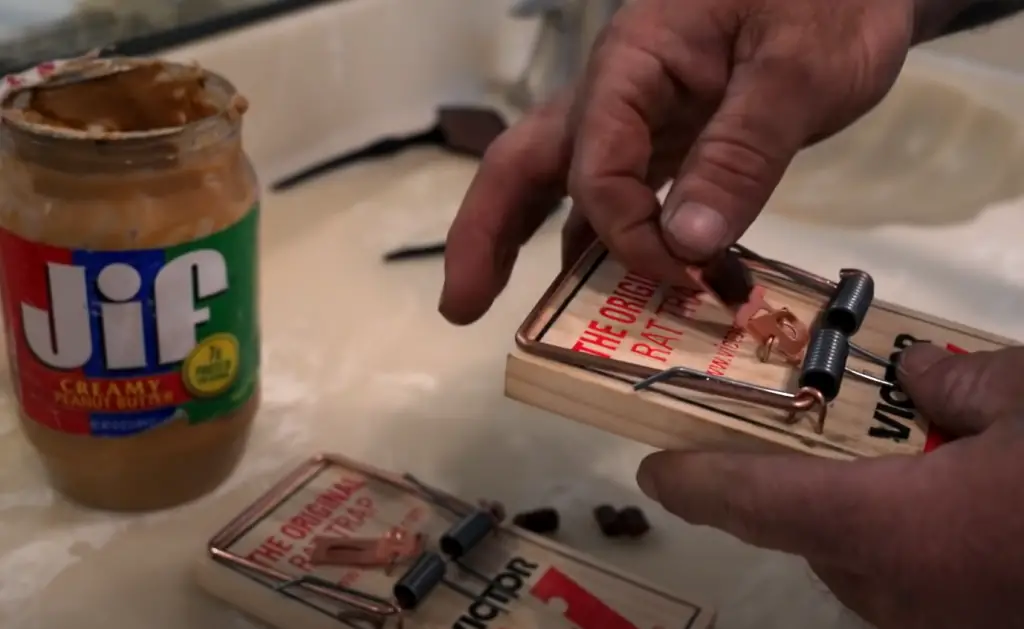
Letting your pets roam free in the yard is also an effective way to keep rats away. Cats and dogs will often chase away any rats they come across. However, keep in mind that rats may carry diseases that can be harmful to your pets, so it’s important to keep an eye on them and make sure they don’t get too close.
Can rats climb vertical surfaces?
Rats are excellent climbers and can easily scale vertical surfaces like walls and fences. In fact, their ability to climb is one of the main reasons why they’re such a nuisance in urban areas. If you have rats in your yard, it’s important to inspect the perimeter for any gaps or holes that they could use to get inside.
How do you get rid of a rat in the garden?
Rats are smarter than you think. You need to be very careful when trying to get rid of a rat in the garden, as they will quickly learn your traps and avoid them. The best way to get rid of a rat in the garden is by using a live trap. This will allow you to catch the rat without harming it, and then you can release it far away from your home.
Rat poison is another option, but it is very dangerous to other animals and children when left in the open, so it should only be used as a last resort.
What is the fastest way to get rid of rats outside?
The quickest and most effective way to get rid of rats outside is to use a rat trap. There are many different types of rat traps available on the market, so be sure to choose one that is appropriate for your particular situation. If you have a lot of rats, you may want to consider using multiple traps.
Another way to get rid of rats outside is to use rat poison. Rat poisons can be effective, but they are also dangerous to other animals and children, so be sure to use them with caution.
You can also try to deter rats by making your property less appealing to them. Be sure to clean up any food or water sources that might be attracting them, and seal any holes or cracks that they might enter through.
Useful Video: How to Prevent and Control RATS in Your Garden
Conclusion
Rats are intelligent, resourceful creatures that can be difficult to keep out of your garden. Not only do they eat your plants, but they can also carry diseases that are harmful to humans and animals. If you have a rat problem in your garden, there are a few things you can do to get rid of them.
First, try to identify how the rats are getting into your garden. If you can find their point of entry, you can block it off with wire mesh or another material. You can also set up traps or bait stations around your garden to catch the rats. Sonic devices that emit high-frequency sounds can also be effective at deterring rats.
If you have a serious rat infestation, you may need to contact a pest control company for help. In the meantime, take steps to clean up any potential food sources around your property, such as garbage cans and pet food dishes. By taking these precautions, you can keep rats out of your garden and away from your home. What other tips do you have for keeping rats out of the garden? Share them with us in the comments below! Thanks for reading!
References:
- https://smithspestmanagement.com/blog/post/how-to-get-rid-of-rats-in-your-home/
- https://diypestcontrol.com/rats.htm
- https://bpca.org.uk/a-z-of-pest-advice/rat-control-how-to-get-rid-of-and-prevent-rats-bpca-a-z-of-pests/188991





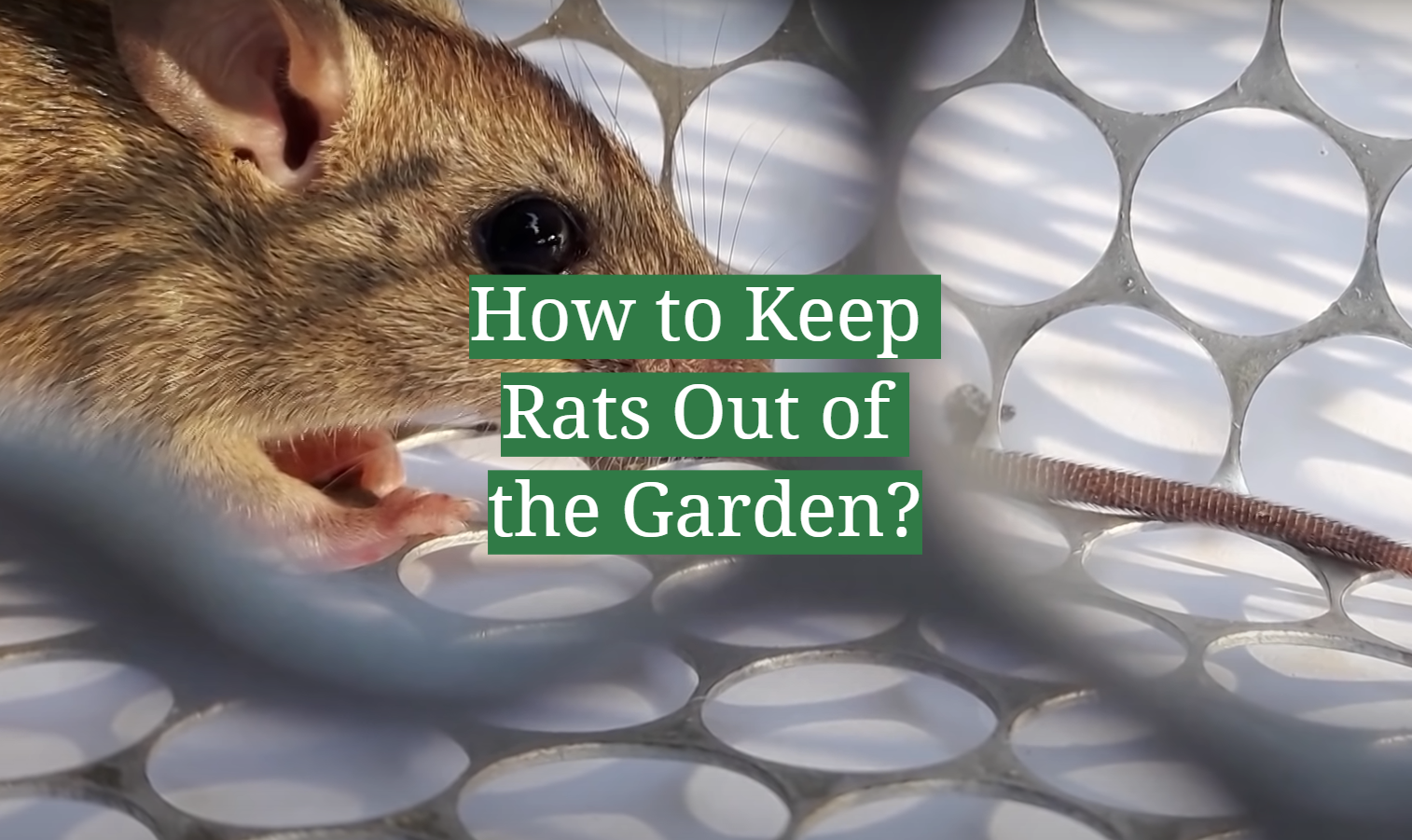
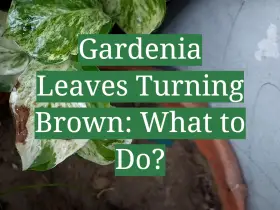


Leave a Reply
View Comments